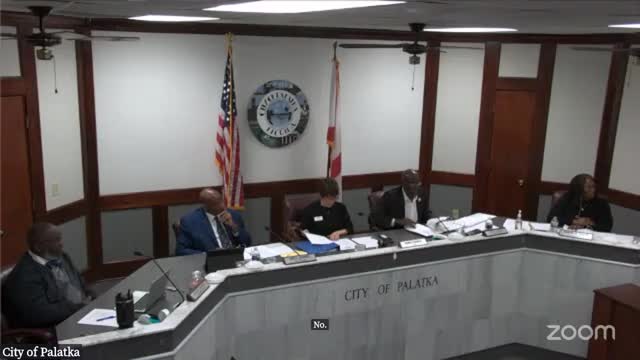Palatka approves emergency funding after aeration tower failure causes discolored, odorous tap water
Get AI-powered insights, summaries, and transcripts
Subscribe
Summary
City commissioners approved up to $300,000 in emergency funding to repair two aging aeration towers after a catastrophic blower failure left residents with discolored and foul‑smelling water; staff said a short‑term repair is expected next week while a full rebuild would cost about $250,000 and take longer.
Palatka commissioners voted to authorize emergency funding to repair two aeration towers that treat the city’s well water after a catastrophic blower failure left residents reporting discolored and foul‑smelling tap water.
City staff told the commission the towers push air through media that strips gases from groundwater; the blower “blew off,” breaking the housing and putting at least one tower out of service. Public Works said a temporary “band‑aid” repair should be in place next week while fabrication takes place; a full rebuild of both towers would cost about $250,000 and require custom fabrication because replacement parts are obsolete.
Why it matters: the towers remove gases that cause offensive odor and color. Staff said the condition posed no health risk but did produce off‑putting water for customers and prompted social‑media concern. Commissioners pressed staff for a public notice explaining the cause and timeline and asked the city’s public information officer to publish an update.
Public works staff said the towers have been out of service at times for many years, that parts are obsolete and custom work is needed, and that a comprehensive rebuild would restore a 20–30 year life with regular maintenance. Staff described a two‑step approach: a rapid temporary repair to restore acceptable water appearance and smell, and a capital project to fully rebuild both towers.
Commission action and process: Commissioners made and seconded an emergency motion to fund repairs; the motion carried without recorded opposition. The approved funding cap was $300,000, which staff said covers immediate repairs and the planned full rebuild costs. Commissioners also directed staff to issue a public communication explaining the problem, the expected short‑term repair, and the longer‑term capital plan.
What staff will do next: Public Works will proceed with the temporary repair (fabrication began the week following the meeting, staff said) and prepare a capital scope and cost estimate for the full rebuild. Staff also said they have implemented an expanded preventive‑maintenance program to reduce the risk of repeat failures.
Commissioners and staff emphasized the need to budget for long‑term capital replacement going forward so that the city does not repeatedly rely on emergency fixes.
A note on authority and limits: staff told the commission the towers’ failure did not present a public‑health threat, only a water‑quality nuisance, and that replacement parts no longer exist and must be custom‑fabricated.
